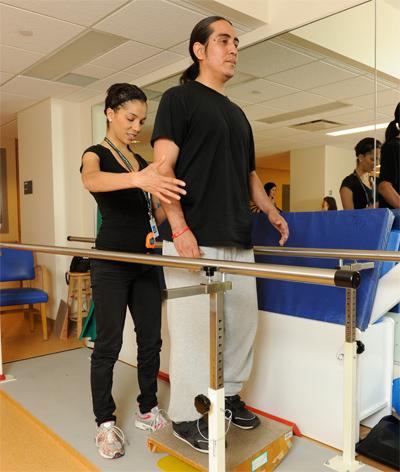
Stroke patient Pablo Boada, with physiotherapist Marika, works on his recovery at Toronto Rehab Institute. (Photo: UHN)
Stroke caregivers are happier when they continue enjoying their own hobbies and interests, according to newly released research led by Dr. Jill Cameron, Affiliate Scientist, Toronto Rehab.

Dr. Jill Cameron, Affiliate Scientist, Toronto Rehab, says when a stroke is considered mild, expectations are high and issues more subtle, resulting in frustration. (Photo: University of Toronto)
Researchers interviewed approximately 400 family members who provide informal care to their loved one who suffered a stroke.
"I was most surprised that caregivers were happier when caring for a family member who survived a more severe stroke," said Dr. Jill Cameron, Affiliate Scientist, Toronto Rehab. "But when a stroke is labelled mild, expectations are high and the issues are more subtle. That can cause more frustration because survivors of a mild stroke still have problems."
The study also pinpointed that family caregivers were less happy if they were caring for a stroke survivor who had memory loss, depression and other mood, cognitive or behavioural issues.
The hope is this will help inform how the health-care system can make adjustments to improve the support for stroke survivors and their loved ones.
"If the family is doing better, that helps the patient do better," said Dr. Cameron.
For the full media release,
click here.
